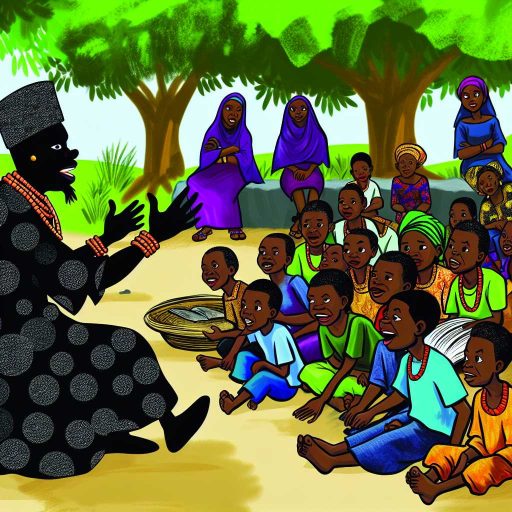Introduction
Outdoor games for kids are vital for children’s physical and emotional development.
It encourages creativity and fosters social skills.
Activities outside allow kids to explore their environment and develop important abilities.
Unfortunately, many families in Nigeria face significant economic challenges.
Limited resources often restrict children’s access to recreational activities.
Parents may feel pressure to provide entertainment that is both enjoyable and affordable.
This blog aims to offer creative, budget-friendly outdoor games that require little to no financial investment.
Children thrive when they can engage in playful activities.
It keeps them active and contributes to their well-being.
Hence, affordable outdoor games can bridge the gap created by economic constraints.
The focus should be on leveraging creativity and resourcefulness.
Parents can utilize simple materials, which are often readily available at home.
Moreover, these games foster teamwork and cooperation.
They can strengthen family bonds, whether played among friends or with siblings.
From scavenger hunts to relay races, the options are endless.
This blog post will guide you toward inventive games that spark joy without breaking the bank.
By promoting fun and affordable outdoor activities, we can help kids stay healthy and engaged.
Embracing the natural elements and creativity improves children’s overall health.
Additionally, these activities encourage important life skills like resilience and determination.
As parents, we can enhance our children’s lives through simple outdoor fun.
Let’s explore these games, fostering a joyful childhood experience.
With minimal investment and maximum fun, families can watch their children thrive.
In the following sections, we will highlight specific games that provide laughter, learning, and lasting memories.
Everyone deserves the opportunity to play, regardless of their financial situation.
Let’s inspire our children to connect with the environment.
Benefits of Outdoor Play
Outdoor play is essential for children’s overall development.
Engaging in activities outside offers numerous benefits that contribute to their physical, social, and psychological growth.
Parents often seek ways to enrich their children’s lives without overwhelming their budget.
Outdoor games provide an excellent solution while promoting healthy habits and skills.
Physical Health Benefits
Outdoor games play a significant role in enhancing children’s physical health.
Here are some key benefits:
- Improved Fitness: Regular outdoor play encourages kids to stay active.
Activities like running, jumping, and climbing enhance their cardiovascular health. - Coordination Development: Various outdoor games require physical coordination.
Children learn to control their movements better through activities such as throwing, catching, and balancing. - Motor Skills Improvement: Games that involve different hand and body movements help refine fine and gross motor skills.
Playground structures, parks, and open spaces provide ample opportunities for kids to engage in physical activities.
When children participate in these games, they develop strength, endurance, and flexibility.
Their physical wellbeing flourishes through consistent outdoor play.
Social Skills Development
Outdoor games are not only beneficial for physical health but also crucial for developing social skills.
Children learn to interact with their peers in various ways:
- Teamwork: Many outdoor games require teamwork.
Children understand the value of working together towards a common goal. - Communication: Engaging in play fosters communication among peers.
Kids learn how to express their thoughts, give instructions, and negotiate roles. - Conflict Resolution: Disagreements may arise during play.
Children learn essential conflict resolution skills by navigating these situations.
When kids participate in group activities, they build lasting friendships.
They practice empathy and learn how to support one another.
These experiences translate to better collaboration and interpersonal skills in adulthood.
Psychological Advantages
Outdoor play also provides several psychological benefits for children.
Engaging in nature and unstructured activities fosters their mental well-being:
- Creativity: Unstructured play ignites children’s imaginations.
They create their games, narratives, and even rules during outdoor activities. - Independence: Playing outside gives kids a chance to explore.
They learn to make decisions and manage their time independently. - Reduced Stress: Outdoor activities can reduce anxiety and stress.
Fresh air and sunshine contribute to positive moods and mental clarity.
Children exposed to outdoor environments experience a sense of freedom.
They feel more in control of their surroundings, which boosts their confidence.
Encouraging outdoor play fosters a positive mindset and emotional balance in kids.
Encouraging Outdoor Play
Parents can encourage outdoor play without financial strain.
Implementing simple strategies can facilitate engaging and enriching experiences:
- Utilize Local Parks: Visit community parks that offer open spaces and playgrounds.
Nature walks provide opportunities for exploration and discovery. - Create a Playdate: Plan playdates with neighbors or friends.
Engaging multiple children fosters social interaction and collaboration. - Introduce Low-Cost Games: Initiate classic games like tag, hide-and-seek, or duck-duck-goose.
These require minimal equipment and provide hours of enjoyment.
Encouraging outdoor play doesn’t have to come with a hefty price tag.
Parents can creatively inspire their children to embrace outdoor activities in various ways.
Parenting Made Just for You
Get personalized Parenting Solutions tailored to your child’s needs. Transform your parenting journey with expert guidance in 1-3 days.
Get StartedPromoting outdoor play stands as one of the best investments parents can make for their children’s development.
The individual benefits—physical health, social skills, and psychological advantages—combine to create well-rounded, resilient individuals.
So, grab some chalk, a ball, or even your kids’ favorite toy, and head outside.
The world is only a play experience away!
Traditional Nigerian Games
Nigeria has a rich cultural heritage filled with traditional games.
These games have been played for generations.
They promote social interaction, cooperation, and fun.
Let’s explore some popular traditional games like Ludo, Ayo, and Skipping Rope.
We’ll also discuss how these games can be adapted for outdoor play.
Ludo
Ludo is a classic board game loved by many Nigerian children.
It involves racing four pieces from start to finish.
Players roll dice to decide movement.
The game encourages strategic thinking and social skills.
To adapt Ludo for outdoor play, use chalk to create a giant board on the ground.
Here’s how to create an outdoor Ludo setup:
- Draw a large Ludo board using chalk or paint on the ground.
- Use stones or different colored objects as player pieces.
- Replace dice with a large inflatable dice for a fun twist.
Playing Ludo outdoors brings a sense of adventure.
Kids can run around as they race their pieces.
It promotes teamwork, as children often play in groups.
Ayo
Ayo, also known as Ayoayo or Awale, is a popular traditional game.
It is played on a wooden or plastic board with pits.
Players try to capture the opponent’s seeds.
Ayo encourages concentration and strategic planning.
Bringing Ayo outdoors enhances social engagement among children.
Here’s how to set up an outdoor Ayo game:
- Find a flat surface like grass or sand where kids can gather.
- Create a simple Ayo board using small holes dug into the ground.
- Use pebbles or seeds as game pieces.
Playing Ayo outside allows children to enjoy fresh air.
The competitive spirit of the game fosters camaraderie and teamwork.
Skipping Rope
Skipping rope is a lively activity that kids adore.
It enhances physical fitness and coordination.
Many children can join together, making it enjoyable and active.
Incorporating skipping rope into outdoor play is straightforward and fun.
To introduce skipping rope to outdoor play:
- Gather a long, durable rope suitable for skipping.
- Encourage kids to take turns skipping while others cheer.
- Add rhythm by playing music to create a fun atmosphere.
Kids develop strength and coordination as they jump.
They also practice timing and teamwork as they work together.
Skipping rope outdoors creates lasting memories.
Community Impact
Engaging in traditional outdoor games fosters community spirit.
Children build friendships while playing together.
They learn the values of teamwork, fairness, and respect.
These games also enhance cultural pride.
Understanding cultural heritage builds identity and roots.
Children gain appreciation for their traditions.
This promotes continuity of cultural values across generations.
Here are some community benefits of traditional games:
Unveil the Perfect Name that Tells Your Family's Story
Let us help you find a name that embodies your family's values, traditions, and dreams. Our personalized consultation weaves cultural insights to create a name that's uniquely yours.
Get Started- Encourages social interaction among children.
- Helps build strong community bonds.
- Promotes cultural values and identities.
- Encourages physical activity and healthy living.
Family and community involvement in these games fosters togetherness.
Outdoor games can unite neighborhoods.
This creates opportunities for families to connect through playful traditions.
Moreover, traditional games can pass down local stories and folklore.
This deepens children’s understanding of their heritage.
The history behind these games enriches their playing experience.
Traditional Nigerian games such as Ludo, Ayo, and Skipping Rope enrich children’s lives.
They foster social interaction and promote cultural pride.
Adapting them for outdoor play adds excitement while keeping costs low.
Encouraging outdoor play with these games is a great way to build community spirit.
It cultivates an environment where children can thrive together.
Let’s continue preserving and enjoying these timeless games!
Read: Affordable and Creative Indoor Activities for Nigerian Families
Nature-Inspired Games
When it comes to engaging children in play, the great outdoors offers endless possibilities.
Nature can be a fantastic playground, especially in Nigeria.
Creative outdoor games that connect kids with nature promote physical activity and foster learning.
The beauty of nature-inspired games is that they are often low-cost and require minimal materials.
Here, we explore a variety of nature-inspired games that Nigerian kids can enjoy while learning about their environment.
Scavenger Hunts
Scavenger hunts are exciting and adaptable games that can suit any environment.
Kids can explore their surroundings while searching for specific items.
This activity encourages teamwork and enhances observational skills.
How to Organize a Scavenger Hunt
- Choose a Theme: Select a theme related to nature, such as plants, insects, or rocks.
- Create a List: Make a list of items for the children to find.
Include things like leaves, feathers, or interesting stones. - Set Boundaries: Determine a safe area where the kids can explore.
Make sure it is age-appropriate. - Gather Supplies: Give each child a bag or basket to collect items.
You can also provide a camera for photography. - Encourage Interaction: Suggest that children talk and share findings during the hunt.
This promotes communication skills.
Benefits of Scavenger Hunts
- Enhances problem-solving skills as kids search for items.
- Encourages physical activity while exploring.
- Teaches children about local flora and fauna.
- Supports teamwork and collaboration in groups.
Nature Trails
Nature trails offer another engaging activity for kids to enjoy the outdoors.
Walking through nature can be educational and immensely satisfying.
This game not only promotes physical fitness but also nurtures a connection with the environment.
Planning a Nature Trail
- Identify a Location: Find a local park or safe nature reserve.
- Set a Route: Plan a trail that is manageable for kids, avoiding steep hills or dangerous areas.
- Include Learning Points: Highlight interesting features like certain plants or landmarks along the trail.
- Encourage Exploration: Allow kids to wander a bit off the path to discover new sights.
- Bring Supplies: Equip kids with notebooks to document their findings or draw interesting sights.
Advantages of Nature Trails
- Provides exercise and fresh air.
- Promotes awareness of biodiversity.
- Improves mood and reduces stress.
- Fosters a love for nature and the environment.
Nature-Inspired Crafts
Turning nature explorations into crafts enhances the learning experience.
Kids can use natural materials to create art pieces or functional items.
This method encourages creativity and resourcefulness.
Craft Ideas Using Natural Materials
- Leaf Rubbings: Place a leaf under paper and use crayons to make rubbings.
- Rock Painting: Use rocks as canvases for painting animals or messages.
- Flower Pressing: Collect flowers, press them in a heavy book, and create bookmarks.
- Natural Collages: Assemble leaves, twigs, and other items into collages on paper.
- Seed Bombs: Mix seeds with clay and compost, form into balls, and plant them when ready.
Benefits of Nature Crafts
- Encourages creativity and imagination.
- Promotes fine motor skills through crafting.
- Reinforces lessons about nature and sustainability.
- Provides a tangible keepsake from outdoor adventures.
Safety Tips for Outdoor Exploration
While exploring the great outdoors is fun, safety should always come first.
Teaching children about safety ensures they enjoy their activities while remaining safe.
Essential Safety Guidelines
- Sun Protection: Apply sunscreen to prevent sunburn and wear hats for shade.
- Hydration: Encourage kids to drink water frequently, especially on hot days.
- Insect Precautions: Use insect repellent to protect against bites, especially near water.
- Animal Awareness: Teach kids about local wildlife and what to avoid.
- Emergency Contacts: Ensure kids know how to contact an adult in case of emergency.
Encouraging Responsible Exploration
- Ensure kids understand the importance of respecting wildlife.
- Encourage them to leave natural spaces as they found them.
- Educate children about native and non-native species in their area.
- Promote curiosity but remind them to stay within safe boundaries.
By integrating nature-inspired games into playtime, children gain countless benefits.
They build essential physical and cognitive skills while enjoying the beauty of their environment.
Encouraging outdoor exploration fosters a lifelong appreciation for nature.
Ultimately, these games contribute to a healthier, happier generation, equipped with knowledge about biodiversity and ecology.
Read: Fun and Educational Activities for Nigerian Families

DIY Outdoor Games
Creating fun outdoor games using household items can be an exciting adventure.
Kids will enjoy spending time outdoors.
These games not only entertain but also foster creativity and resourcefulness.
Instructions for Creating Simple Games
Here are some easy games you can create at home:
Sack Races
- Gather old potato sacks or large sturdy bags.
- Mark a start and finish line in your yard.
- Have each child step into a sack and grab the top edge.
- On “Go,” they will hop toward the finish line!
- The first one to cross the finish line wins!
Sack races encourage friendly competition and improve balance.
Obstacle Course
- Use items like cushions, hula hoops, and boxes.
- Arrange them in a way that creates a challenging path.
- Children can crawl under, jump over, or run around these obstacles.
- Time each child to see who can complete the course fastest.
This game enhances agility and coordination.
Water Balloon Toss
- Fill balloons with water and tie them securely.
- Pair the kids and have them stand opposite each other.
- On the count of three, they toss the balloon back and forth.
- After each successful toss, they step back further.
- The last pair with an intact balloon wins.
This game ensures laughter and excitement, especially on hot days.
Emphasizing Creativity and Resourcefulness
Encouraging kids to be creative is essential.
Design games based on what you have at home.
Let’s look at more fun DIY game ideas using common household items:
Indoor Bowling
- Collect empty plastic bottles; these will serve as pins.
- Fill the bottles with a little water to add stability.
- Use a soft ball as the bowling ball.
- Set up the bottles in a triangular formation.
- Let the children take turns rolling the ball to knock them down.
This game can be played indoors or outside, making it versatile.
Treasure Hunt
- Create a list of items for the kids to find outside.
- Use things like leaves, stones, or even toys.
- Set a timer for added excitement.
- The child who collects the most items before the time is up wins.
This game promotes teamwork and problem-solving skills.
Homemade Frisbee
- Use a paper plate as your base for this game.
- Decorate it with markers or paint for personalization.
- Head outside and toss the frisbee around.
- Set distance goals or try trick throws for fun.
Making your own frisbee encourages artistic expression.
Environmental Awareness: Using Recyclable Materials
Teaching kids about recycling while having fun is important.
Here are some creative ideas:
Recycled Relay Race
- Gather recyclable items like bottles, old clothes, or tin cans.
- Set up a racecourse and place items at different points.
- Each team must run to collect an item and return it.
- The team that collects the most items wins.
This game teaches kids the value of recycling while playing.
Cardboard Maze
- Find large cardboard boxes and cut them into strips.
- Assemble them to create a maze in your yard.
- Kids will navigate through the maze while timing themselves.
- Encourage them to work together to find the best route.
The cardboard maze engages creativity while promoting physical activity.
Nature Collage
- Take a nature walk and collect leaves, flowers, and twigs.
- Bring everything back home and spread out some glue on paper.
- Kids can create beautiful collages using their findings.
- Discuss what they found and where it came from.
This activity helps children appreciate nature and encourages creativity.
DIY outdoor games provide excellent ways for kids to play.
They foster creativity, teamwork, and physical activity.
Plus, these games are budget-friendly and easy to set up.
Use items you have at home, and encourage children to innovate.
Make every game a memorable experience that sparks joy and learning.
Read: A Parent’s Guide to Child-Friendly Restaurants in Nigeria
Incorporating Technology in Outdoor Play
Incorporating technology into outdoor play can transform traditional games into exciting adventures.
Nigerian kids can benefit from this fusion.
By combining technology with outdoor activities, you can promote physical activity while keeping the fun alive.
Using Mobile Devices and Apps
Mobile devices offer various exciting possibilities for kids during outdoor games.
Apps can enhance the engagement level of play while making it educational.
Here are some ways to integrate mobile devices into outdoor activities:
- GPS-based Treasure Hunts: You can create treasure hunts utilizing GPS technology.
Kids can use maps on their devices to find specific locations, solving clues along the way.
This activity encourages teamwork and critical thinking. - Augmented Reality Games: Some apps provide augmented reality experiences that blend the virtual world with the real one.
Kids can interact with digital characters while playing outdoors.
This experience merges imagination with physical activity, sparking creativity. - Fitness Tracking Games: Encourage children to be active by using fitness apps.
These apps can track steps and distance.
They can also set goals and challenges, fostering a friendly competitive spirit among participants.
Balancing Screen Time with Outdoor Activities
While technology offers many benefits, it’s essential to ensure a balance between screen time and outdoor activities.
Here are strategies to maintain this balance:
- Set Clear Boundaries: Define specific times when devices can be used for fun activities.
For example, allow app usage after engaging in outdoor play.
This helps create a routine that emphasizes the importance of physical activity. - Encourage Device-Free Zones: Establish areas where the use of devices is not allowed.
Parks and playgrounds can serve as great device-free zones.
This prevents distractions and promotes interaction among kids. - Model Healthy Behavior: Adults should also engage in outdoor activities without screens.
By setting this example, children see the value of physical play.
Family outings focusing on outdoor games can create memorable bonding experiences.
Examples of Educational Games that Promote Physical Activity
Combining education and fun is a creative way to engage children.
Many games encourage both learning and physical activity.
Here are a few examples:
- Nature Scavenger Hunts: Create a list of items found in nature, such as leaves or rocks.
Kids can use their devices to document findings with photos.
This activity teaches observation skills while encouraging movement. - Math Relay Races: Set up a relay race with math problems at each checkpoint.
Kids must solve a problem before moving to the next station.
This approach reinforces math skills while promoting teamwork and physical fitness. - Storytelling Walks: Use an app to guide children through storytelling adventures in nature.
Kids can unlock chapters of stories as they reach different locations.
This sparks their imagination while making them walk or run to the next reading spot.
The integration of technology in outdoor play creates opportunities for creativity and learning.
When kids combine devices with physical activities, they can develop essential skills.
Outdoor play fosters physical health while keeping children engaged.
The Benefits of Outdoor Play with Technology
Integrating technology into outdoor play has several benefits:
- Engaging Experiences: Kids are often excited about technology.
Using devices in play makes outdoor activities more engaging.
This excitement can draw kids away from sedentary behaviors. - Enhanced Learning Opportunities: Technology can facilitate learning while playing.
Kids can gather information, learn new skills, and develop creativity through games.
This makes learning more memorable and enjoyable. - Social Skills Development: Many outdoor games require teamwork.
Children develop communication skills as they collaborate with peers.
Using technology allows for the inclusion of various learning styles.
Safety Considerations
While utilizing technology, safety should remain a priority.
Here are some safety considerations to keep in mind:
- Supervise Use: Always supervise children when using devices outdoors.
Ensure they know how to handle technology responsibly.
This can help prevent accidents and misuse. - Teach Internet Safety: Educate children about the importance of internet safety.
Make sure they understand not to share personal information.
This is particularly essential during outdoor games using GPS technology. - Choose Safe Locations: Ensure that the outdoor areas for play are safe for children.
Avoid busy roads and hazardous locations.
Always promote safety while integrating fun and technology.
Innovative outdoor games that incorporate technology can enrich children’s play experiences.
By balancing screen time and outdoor activities, you foster healthier habits.
These games provide physical, educational, and social benefits, creating a well-rounded approach to play.
In fact, merging technology with outdoor activities presents endless possibilities.
Nigerian kids can enjoy a range of engaging games without breaking the bank.
With thoughtful implementation, families can embrace the fun of outdoor play while enjoying the benefits of technology.
Read: Best Cinemas in Nigeria for Family Movie Nights
Community Engagement in Outdoor Activities
Creating opportunities for outdoor play is essential for the well-being of children.
Engaging the community enhances these opportunities.
Parents play a crucial role in this process.
Organizing community play days can significantly impact local children’s health and social skills.
These events foster camaraderie among families and encourage outdoor recreation.
How Parents Can Organize Community Play Days
Planning a play day requires thoughtful organization.
Here are some steps for parents to consider:
- Form a Planning Committee: Gather interested parents to brainstorm ideas.
Assign roles to ensure all aspects are covered. - Select a Suitable Date: Choose a day that accommodates most families.
Weekends often work best for everyone. - Pick a Location: Identify a safe, accessible public space.
Parks, playgrounds, or community centers work well. - Plan Activities: Organize age-appropriate games and sports.
Include activities like sack races, tug-of-war, or hide and seek. - Promote the Event: Use community boards, social media, and word of mouth to spread the news.
Encourage families to participate. - Provide Refreshments: Consider asking participants to bring snacks to share.
Healthy options keep children energized. - Prepare for Safety: Ensure first aid supplies are available.
Encourage parents to supervise their children during activities.
Community play days create an inclusive atmosphere.
They allow children to interact and bond with one another.
As parents collaborate, they strengthen community ties.
These events can lead to lasting friendships among families.
Collaborating with Local Organizations for Resources and Support
Collaboration amplifies efforts to promote outdoor activities.
Parents can partner with local organizations for support.
Consider the following organizations for potential partnerships:
- Sports Clubs: Partnering with local sports clubs can provide coaching staff and equipment for activities.
- Schools: Collaborate with schools to access play areas and involve teachers in organizing events.
- Community Centers: These centers often offer resources, venues, and volunteers for outdoor activities.
- Civic Organizations: Youth clubs and civic organizations can assist with funding and promotional support.
- Health Services: Local health practitioners can offer health talks on the benefits of outdoor play.
Reaching out to these organizations can yield significant benefits.
They often provide additional resources, such as sports equipment, educational materials, or even volunteers.
Tips for Creating Inclusive Play Spaces for All Children
Inclusivity is vital in community play spaces.
Every child deserves access to outdoor activities.
Here are tips to foster inclusivity:
- Assess Accessibility: Ensure the play area is accessible to children with disabilities.
Remove obstacles that could hinder mobility. - Diverse Play Equipment: Include a range of toys and equipment suitable for different ages and abilities.
This encourages participation from everyone. - Designate Supervised Zones: Create specific areas for different activities.
This helps children choose what they want to participate in. - Encourage Cooperative Play: Focus on games that require teamwork.
This promotes inclusivity and reduces competition. - Implement Flexible Rules: Adopt rules that accommodate all players’ needs.
Allow adaptations to ensure everyone can participate. - Invite Feedback: Regularly ask parents and children for suggestions on improving the play space.
This enhances community engagement.
Creating inclusive play spaces benefits every child.
It fosters a sense of belonging and community.
When children play together, they build friendships that last a lifetime.
Community engagement plays an essential role in promoting outdoor activities for children.
Organized events increase participation and interest in healthy play.
By working together, parents and local organizations can build vibrant outdoor experiences.
Encouraging inclusivity ensures that all children can benefit from outdoor recreation.
With proper planning and collaboration, exciting opportunities await every child in the community.
Conclusion
Cost-effective outdoor activities play a crucial role in child development.
They encourage imaginative play and social interaction among kids.
Children gain physical fitness through active games, fostering healthier lifestyles.
Moreover, outdoor play enhances sensory experiences and cognitive skills.
Parents should embrace these budget-friendly games for their children.
By promoting outdoor play, they empower kids to explore their environment.
Simple games like tag and hide-and-seek are timeless and entertaining.
They encourage creativity and teamwork, essential life skills for children.
Engaging in outdoor activities nurtures a love for nature.
Immersing kids in the fresh air and sunlight strengthens their connection to the environment.
This bond instills appreciation for the outdoors from an early age.
Furthermore, it reduces the reliance on screens, promoting mental well-being.
Encouraging physical activity also combats childhood obesity.
Active play builds endurance, strength, and coordination.
It also fosters resilience and problem-solving skills through challenges encountered in games.
Children learn adaptability while having fun outdoors.
All in all, outdoor play contributes significantly to holistic child development.
By focusing on cost-effective games, parents can facilitate fun, engaging experiences.
They should create opportunities for kids to connect with nature and their peers.
Foster an environment that celebrates outdoor exploration and physical activity.
Involve children in selecting games, making playtime enjoyable.
Encourage them to invite friends, enhancing social skills.
Together, they can develop lasting memories and friendships.
Each moment spent outdoors becomes a treasured part of their childhood.
Let’s prioritize outdoor activities for our children’s growth.
By doing so, we nurture healthy, happy, and well-rounded individuals.
The benefits of play extend far beyond entertainment; they shape the future.
Encourage outdoor games today for a brighter, healthier tomorrow.




